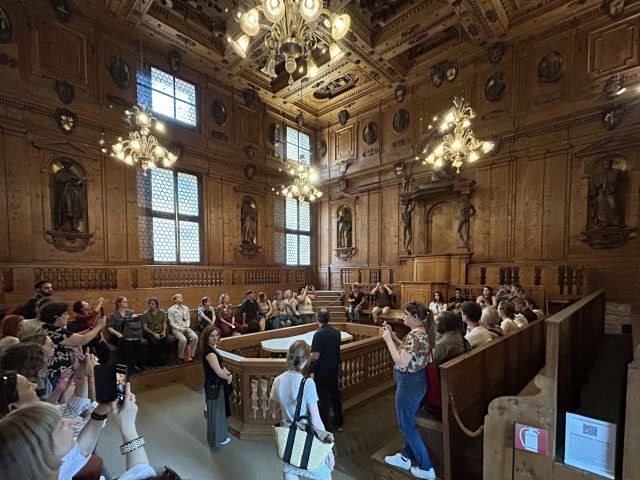From 24 to 28 June, the Staff Training Week “Old and New Challenges for Librarians” at the University of Bologna provided a platform for twenty-eight librarians from nineteen countries. The event addressed topics such as digitisation, artificial intelligence, green revolution, professional values, and multiculturalism. An opportunity to discuss the profound transformation process affecting the services offered by university libraries in the light of the new social challenges.
This year’s programme centred on three main themes: cooperative services, such as OPAC, digital libraries, and discovery tools; information literacy in the context of open science and artificial intelligence; and cultural heritage with the role of libraries in digitisation and sharing of FAIR data.
The participants were welcomed by Professor Daniela Cavalcoli, the Rector’s Delegate for the Mobility of teachers, students and professional staff, and Professor Carla Salvaterra, President of the University Library System (SBA). They engaged in workshops, case studies, world cafés, and other dynamic sessions, sharing professional practices and skills.
The Staff Training Week was enriched by guided tours of the University and city libraries, including the University Library, the Library of the Department of History, Cultures, and Civilizations, the Municipal Library of the Archiginnasio, and the Biblioteca Salaborsa.
Participants also had the opportunity to admire the Aldrovandi collection at the University Library, and they could choose between the “Daughters of the Alma Mater” tour, a tribute to the women who have shaped the history of the University of Bologna, and a visit to the Leonardo Possati Library at the Sant’Orsola-Malpighi University Hospital, featuring its ancient surgical instruments.
The programme concluded with an intercultural lunch where everyone shared typical foods and beverages from their home countries, explaining their origins and unique characteristics.
This training week laid the groundwork for potential collaborations among colleagues, both through future joint participation in thematic conferences and via digital platforms for ongoing communication and sharing of professional experiences.

